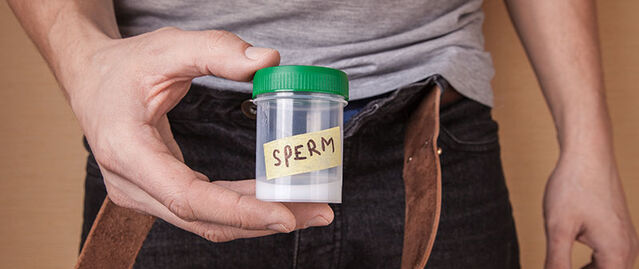Genetics
Sperm Shortage: Sperm Bank vs. Private Donor
6 things you need to know before you purchase sperm.
Posted April 9, 2021 Reviewed by Kaja Perina
Key points
- COVID-19 has kept many men away from sperm banks.
- People are turning to private donors, who often have stronger economic incentives to donate.
- Consider your state's laws and consult with a physician to determine whether a privately-paid donor is a viable option.

If you've been struggling to build a family, the past year probably added obstacles that you would have never imagined: lockdowns and sheltering, clinics on hiatus, ovum donors and gestational surrogates unable to travel, and unknowns about the virus and its effects on pregnancy. A year later, there is a better understanding of the virus, more knowledge on preventing infection, increased vaccination availability, and clinics reopening. However, there is an unexpected new glitch for many – a shortage of sperm.
Why is there a shortage of sperm? The main reason is simply, supply and demand:
- More than ever single women are using fertility clinics to start a family
- More same-sex lesbian couples are starting families
So donor sperm, which has always seemed plentiful, now appears to be in short supply. The Covid pandemic, which made many more people eager to start a family, kept many men away from sperm banks to avoid the virus. Now, the demand is so high that many sperm banks say they can’t fill all the requests.
News of sperm shortage caught wind quickly, causing some sperm donors to take advantage of the problem and sell their sperm directly to recipients1. What’s the problem with direct-to-consumer paid sperm donation?
Well, if you are thinking about this route, here are just some of the issues to consider:
1. Quality control. Is the independent paid donor providing the physical exam results and comprehensive genetic tests that reputable sperm banks offer? How do you check to see if the tests are valid? Does the donor claim fertility? Where’s the proof? Is there accurate gene pool information? Is it through 23 & Me or Ancestry.com? Are there education transcripts? A psychological history? Drug or alcohol history? A note from their doctor? You would need to oversee the quality control, and it’s possible to get scammed.
2. Private sperm sales usually cost more than sperm banks. Banks typically offer sperm donors about $70 for each donation, up to three times per week, but private sperm sellers can make more money than that – a lot more, potentially $4,000 over several months1. The American Society of Reproductive Medicine guidelines recommends that banks not pay donors so much that financial benefit becomes the primary motive for sperm donation. And for many private donors, the economic benefit is why they have entered the ‘sperm business. This could make many potential recipients very wary.
3. It’s difficult to connect with a private paid sperm donor. There are groups on social media that act as referral services, and there are also personal ads by paid sperm donors, but even if you find a donor, the negotiations are just starting. Travel costs and arrangements, reimbursement for time and effort, and legal costs are just the tip of the iceberg, and they will be different for each donor.
4. Sperm banks are equipped for cryogenic storage of sperm, as required by the FDA, so where’s the regulation for an independent sperm donor? One of the biggest reasons you should consider sperm banks are because they quarantine sperm for six months after a donation and recall the donors for blood tests each time a batch is released. On the other hand, a private paid donation means no FDA regulation and usually means the sperm is not frozen and must be sent in special vials, or the sperm donor must travel to synchronize with each recipient’s ovulation. This is sometimes not possible or very costly.
5. While most banks limit the number of families to which a donor can give, there are no limits on private sperm donors. There is also no anonymity. The sperm donor will be known to all his recipients and vice versa. For some, this is a bonus, but for many, it’s a concern. They are concerned because they may see the sperm as a donation to the recipient, not to the child, and don’t want the donor to show up uninvited in the future.
6. And finally, my particular concern: there is no required counseling with private sperm donation. Does the sperm donor realize that he is passing on genes from his entire gene pool, not necessarily those genes that have shown up in him? Does the recipient realize this? If not, attractive donors with graduate degrees may overcharge, even though there’s no way of knowing if any of those traits will be passed along.
Rather than taking short-cuts, Progyny's Medical Director, Dr. Alan Copperman, encourages patience and reminds us that, "with vaccinations, it won't be long before we re-build sperm bank reserves."
If you are thinking about using a private paid donor despite these issues, ask for the program guidelines and regulations at your fertility clinic. Be sure to ask about your state's laws and consult with your physician to ensure that a private paid sperm donor can participate in that program.
References
(1) New York TimesThe Sperm Kings Have a Problem: Too Much Demand,By Nellie Bowles, Published Jan. 8, 2021Updated Jan. 20, 2021




